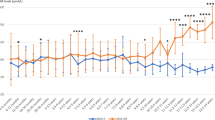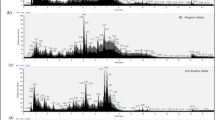Abstract
Extract: The investigation was designed to explore the use of tests tapping reversible aspects of behavior and performance and to find out whether these data can be correlated with concurrent metabolic changes in different dietary phases. The four subjects had classic phenylketonuria, diagnosed on the basis of a high level of serum phenylalanine on a regular diet, and severe mental retardation. Three types of diet were used: the general institutional diet, a low phenylalanine diet, and a low phenylalanine diet with added L-phenylalanine. A position discrimination and reversal task was used. Blood samples were taken every week on the day before psychological testing, and one 24-hr urine sample was collected during each dietary phase.
In subjects I and II performance deteriorated upon elevation of the serum phenylalanine level, but these changes were transient only, thus showing an adaptation to the effects of the high serum phenylalanine level.
Subject III showed increased response latencies (slower test responses) during high phenylalanine diet phases and faster responses while on a low phenylalanine diet. The correlation between response time and phenylalanine level is highly significant (r = 0.86, P < 0.001).
On the low phenylalanine diet subject IV's responses were fast and her performance was very stable, which contrasted with erratic performance during the high phenylalanine phases. Calculations show a significant association with phenylalanine level, both for response time (r = 0.47, P < 0.05) and for variability in response time within each session (r = 0.46, P < 0.05).
Biochemical variability was observed in metabolic responses to phenylalanine loading, especially in the excretion of tryptophan metabolites.
Speculation: A simultaneous analysis of biochemical and behavioral parameters in sufficient detail to permit the detection of individual variability is shown to be feasible. Further studies of a similar nature on a larger scale should help to achieve a more precise understanding of the biochemical processes in the nervous system which are responsible for the behavioral changes.
Similar content being viewed by others
Log in or create a free account to read this content
Gain free access to this article, as well as selected content from this journal and more on nature.com
or
Author information
Authors and Affiliations
Rights and permissions
About this article
Cite this article
Anderson, V., Siegel, F. & Bruhl, H. Behavioral and Biochemical Correlates of Diet Change in Phenylketonuria. Pediatr Res 10, 10–17 (1976). https://doi.org/10.1203/00006450-197601000-00003
Issue date:
DOI: https://doi.org/10.1203/00006450-197601000-00003
Keywords
This article is cited by
-
Outcome of pregnancy in the rat with mild hyperphenylalaninaemia and hypertyrosinaemia: Implications for the management of “human maternal PKU”
Journal of Inherited Metabolic Disease (1985)



